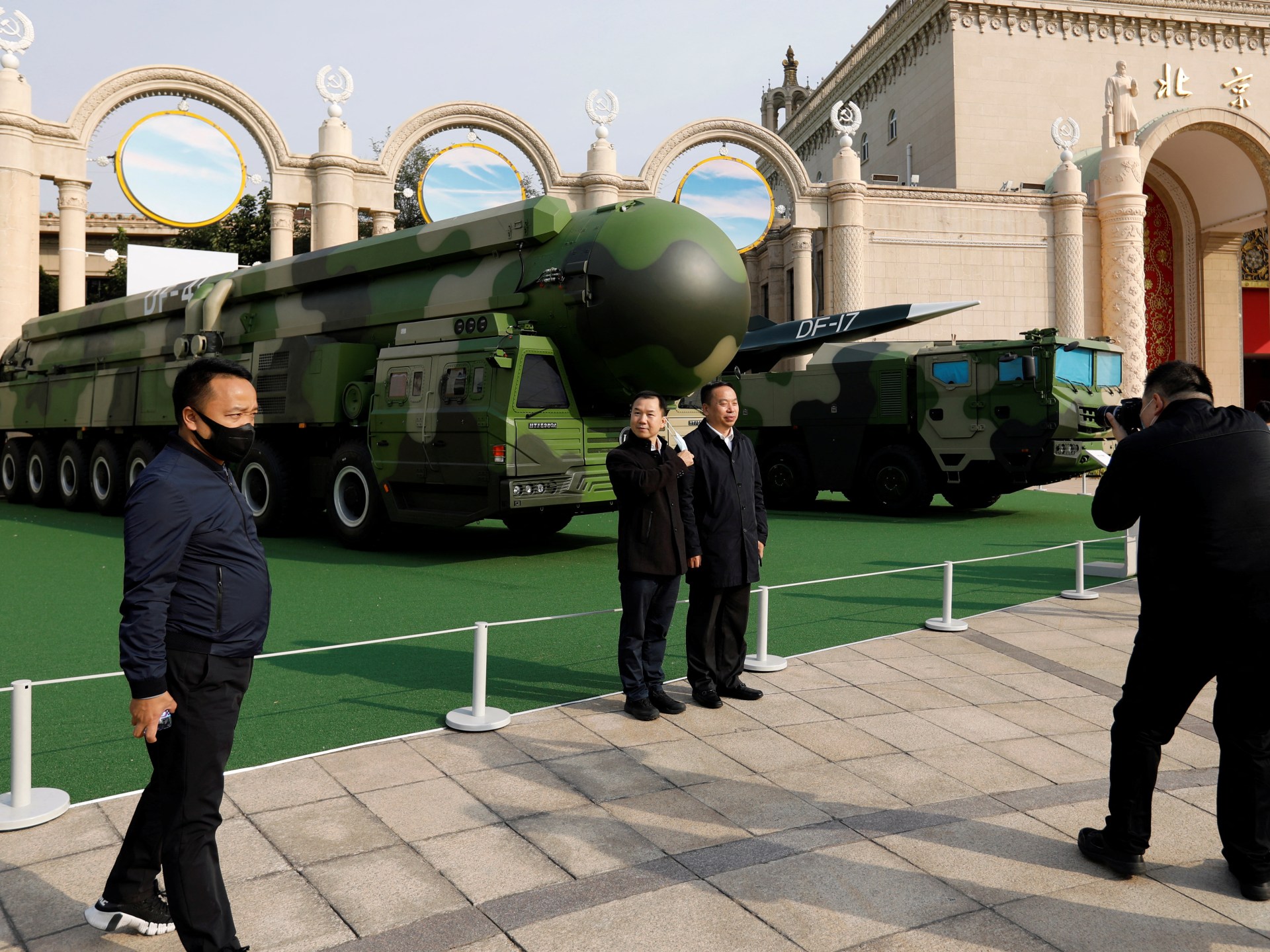China is seeking to increase its nuclear arsenal to an unprecedented level and modernize it to bolster its deterrence in the event of a conflict with the United States, experts say.
According to the International Peace Research Institute in Stockholm, China has an arsenal of 350 nuclear warheads, while Russia has 4477,3708 and the United States has <>,<>.
But Beijing could raise that number to 1500,2035 by <>, as predicted by a Pentagon report published in November.
Matt Korda of the Union of American Scientists, an NGO that studies nuclear proliferation, said: "It seems that China no longer wants to settle for a few hundred nuclear weapons to ensure its security."
After the first nuclear test in 1964, China only maintained a modest arsenal and committed not to take the initiative to use atomic weapons, stressing that it would resort to it only if it was targeted with such a weapon.
Over the past decade, Chinese President Xi Jinping has pushed for a large-scale modernization of the military, including improved nuclear capabilities.
David Logan, a professor at the Naval War College Institute for Research and Education on the U.S. Navy, said: "China is currently undergoing the most significant expansion and modernization of its nuclear forces in its history."
The country was seeking not only to increase the production of nuclear warheads, but also to improve the ability to launch them from the ground and from an aircraft or submarine.
Russian support
The Pentagon also reports that China is "rapidly" building ICBM launch facilities, with more than 300 missile launch facilities.
Beijing has repeatedly said it keeps its nuclear power "at the minimum level necessary for national security".
In March, Xi Jinping stressed in a joint declaration with his Russian counterpart Vladimir Putin that "no nuclear war should be waged."
The International Campaign to Abolish Nuclear Weapons, a coalition of nongovernmental organizations, sees China as allocating $11.7 billion for its nuclear program in 2021, less than a third of the U.S. budget in this area.
Experts believe that there are several obstacles to China's strengthening of its nuclear arsenal, and its means are limited to produce fissile material necessary for the manufacture of nuclear warheads, and Russia may provide assistance in this regard.
Beijing and Moscow pledged to boost their nuclear cooperation at the summit between Xi Jinping and Vladimir Putin in March.
Senior Russian atomic energy officials have agreed to help China have "fast reactors" that will produce fissile material much faster than it consumes, Moscow has confirmed.
Beijing says the deal covers only the civilian nuclear program, but experts say it could also help build stockpiles of weapons-grade fissile material.

